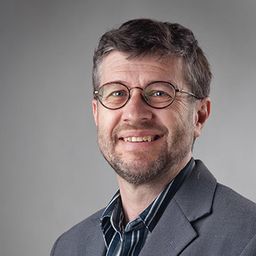
Maryam El Moumni holds a Master’s Degree in Architecture with five years of relevant experience in Morocco. Growing up in Kénitra, a typical industrial city, industrial buildings and sites fascinated her in the way they shape their urban landscapes and communities. In this regard, local government officials and the civil society recognize her visionary graduation project on reclaiming the city’s waterfronts and their docklands, which triggered multiple initiatives to reshape the city. As a result, she was involved in the assessment of multiple large-scale projects as an architect of Kénitra’s Municipal Department of Planning, including the feasibility study of some notable renewal projects.
Maryam’s fascination with the Built Heritage led her to pursue an additional Dual Master’s Degree in World Heritage Studies and Cultural Heritage in Germany and Australia. Her commitment to understanding the character of Industrial Heritage shows up again through her graduation work on Telecommunication Heritage and Europe 1 Transmitter Building, which is the subject of her participation in the TICCIH2022 Congress. She previously published a contribution about this building in the collection of the Werkbund of Saarland “Résonances. Architectures à l’origine de l’Europe 1945-1965”.
Maryam settled in Canada in 2020, recently obtained her architecture academic certification, and is looking forward to continuing her career in architecture and heritage.
Sessions in which Maryam El Moumni participates
martes 30 agosto, 2022
Sessions in which Maryam El Moumni attends
domingo 28 agosto, 2022
Join the conference organisers and TICCIH board members for a welcome cocktail and some festive words of introduction, in the former forge of the École technique de Montréal, founded in 1909, now part of the Université du Québec à Montréal campus.
lunes 29 agosto, 2022
Si la vallée du canal de Lachine a été le berceau de l’industrialisation canadienne, la géographie industrielle métropolitaine ne s’y est pas confinée, peu s’en faut, Outre les grandes concentrations d’entreprises des quartiers centraux, elle est constituée des réseaux infrastructuraux, d’une douzaine de centrales hydroélectriques et des ensembles manufacturiers disséminés dans une quinzaine de petites villes aujourd’hui intégrées dans l’aire métropolitaine. La conférence proposera un surv...
martes 30 agosto, 2022
Efforts to preserve industrial heritage occurs in a socio-economic and political context. But what is being preserved and for whom? And, relatedly, what is the relationship between industrial heritage sites and the deindustrialized working-class communities that often adjoin them? The keynote will consider the ways that the preservation of Montreal’s Lachine Canal, Canada’s premier industrial heritage site, has enabled gentrification processes that have forc...
miércoles 31 agosto, 2022
Visit of the permanent exhibition : À cœur de jour, grandeurs et misères d'un quartier populaire, which traces the history of one of the oldest industrial and working-class neighborhoods in Montreal. Discovery of the old Généreux bathhouse, a building that recalls a time when most working-class dwellings had neither bath nor shower. Presentation of some elements of the neighborhood's heritage on the way between UQAM and the Écomusée.The visit will be guided in French by René Binette...
L’architecture du XXe siècle, par les méthodes de construction, les matériaux utilisés et la conception des ouvrages est partie prenante du patrimoine industriel. S’intéresser aux nouveaux matériaux, ceux apparus et produits depuis le XIXe siècle, participe de cette connaissance de l’industrie et de ses traces matérielles et immatérielles.Lancée en janvier 2019 pour quatre ans, le programme de recherche ARCHIPAL, «&n...
The legacy of open pit mining in general, and in the landscape of the Lusatian lignite district in Germany in particular, is a recultivated, restored, man-made, technogenic landscape. However, the future post-mining land uses in Lusatia must be understood as an opportunity that enables future-oriented land use not only from a technological-scientific and economic basis, but also from a social and especially cultural perspective. Therefore, the currently often negatively described Lusatian ...
Examples from several continents, in Europe, South America, North America, Turkey, show strong continuity in the objectives that govern the reuse of industrial buildings, for example the concern to take into account the industrial heritage as a resource for urban and territorial development, or the close links that it has with culture, whether it is used to house cultural facilities or more simply to bear witness to the history and memory of the place. Increasingly, policies for the reuse ...
This tour offers an excursion on a privatized deck of Montreal's bateau-mouche; a playful guided tour that takes in some of the city's industrial landmarks from the St. Lawrence River.The tour is priced to cover additional costs; the fee includes access to the bateau-mouche, the tour and a drink.Departure will be on foot from the conference venue; boarding is at 3:45 p.m. at the l...
In this lecture, I would like to talk about deindustrialised communities, heritage and memory in the context of right-wing populism. Drawing on studies of memory and heritage, I argue that right-wing populists have cornered the market on talking about the past of deindustrialised communities. They have successfully misrepresented this rich and complex history to fuel rage, resentment, fear and reactionary nostalgia. Indeed, ‘the past’, and in particular the industr...
jueves 1 septiembre, 2022
The textile sector led industrialization and urbanization worldwide for nearly three centuries. Textile industries established global trade networks based on transport, skills, knowledge, and power. They changed territories, landscapes, and cityscapes. Mill complexes and their infrastructure - canals for power and transport, railways, warehouses, and workers' housing- form historic rural or urban landscapes and represent global chains of production. This textile heritage includes tangible ...
viernes 2 septiembre, 2022
In this meeting, TICCIH representatives from around the world will present work in the field of industrial heritage in their respective countries. The presentations are based on the national reports that TICCIH has gathered for the 2022 World Congress, but may emphasize particular matters. These can range across several fields where industrial heritage plays a role – from academic research and other forms of knowledge production, to heritage management a...
At every World Congress, the international TICCIH community celebrates a General Assembly of its members. The event is open for any registered member of TICCIH, as well as the wider public. According to the current TICCIH Statutes (https://ticcih.org/about/statutes/), however, only Na...
In the refusal of people in communities abandoned by industrial capital to abandon their own places, we can read an implicit critique of the mobility and unaccountability of capital, raised by those who were once inside (however tenuously or uncomfortably) and now find themselves marginalized, “left behind.” The desire to catch up again, whether through attracting new investment or transvaluing abandoned sites as tourist attractions, makes this an essentially conservative critique that is ...




